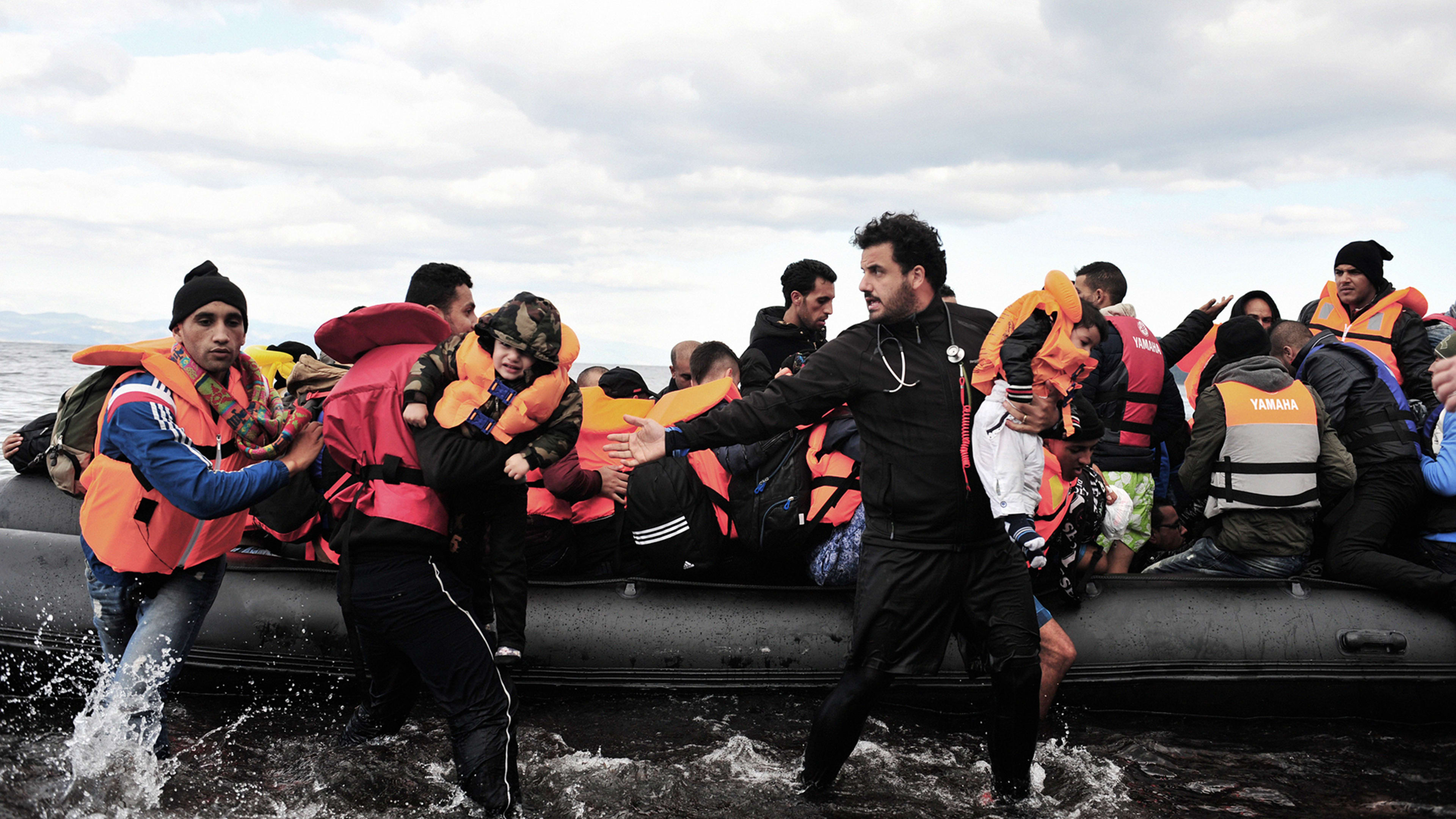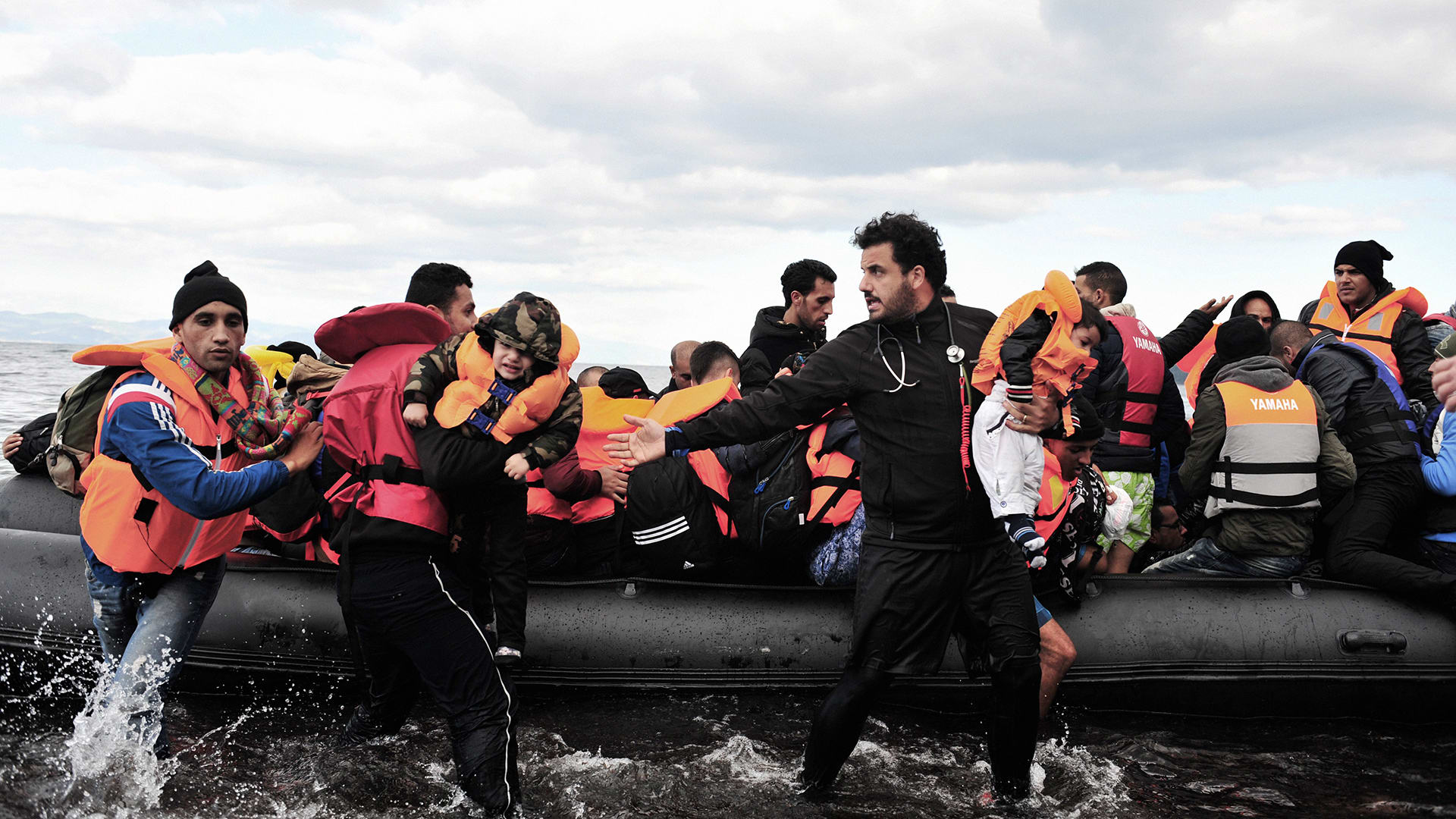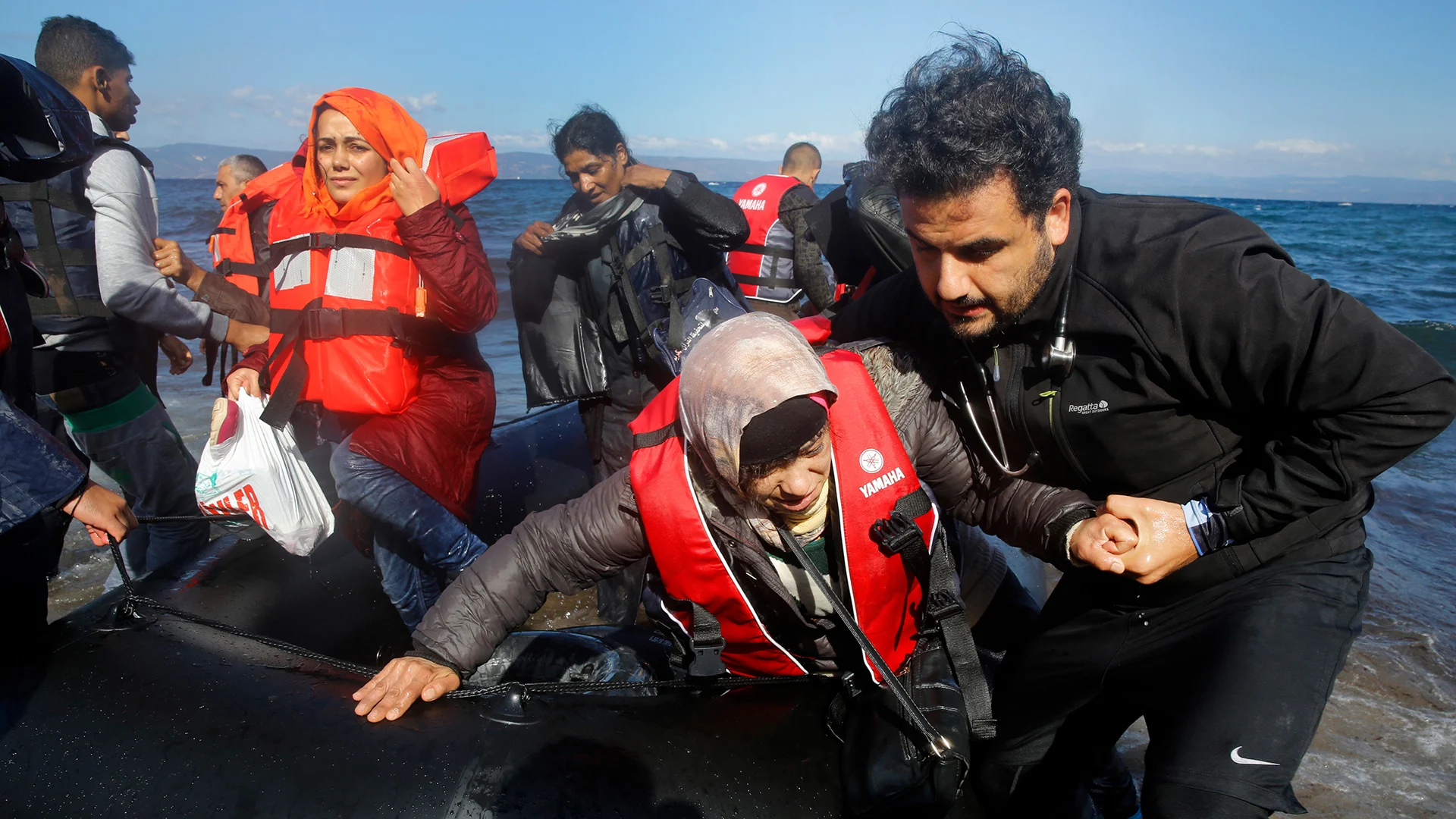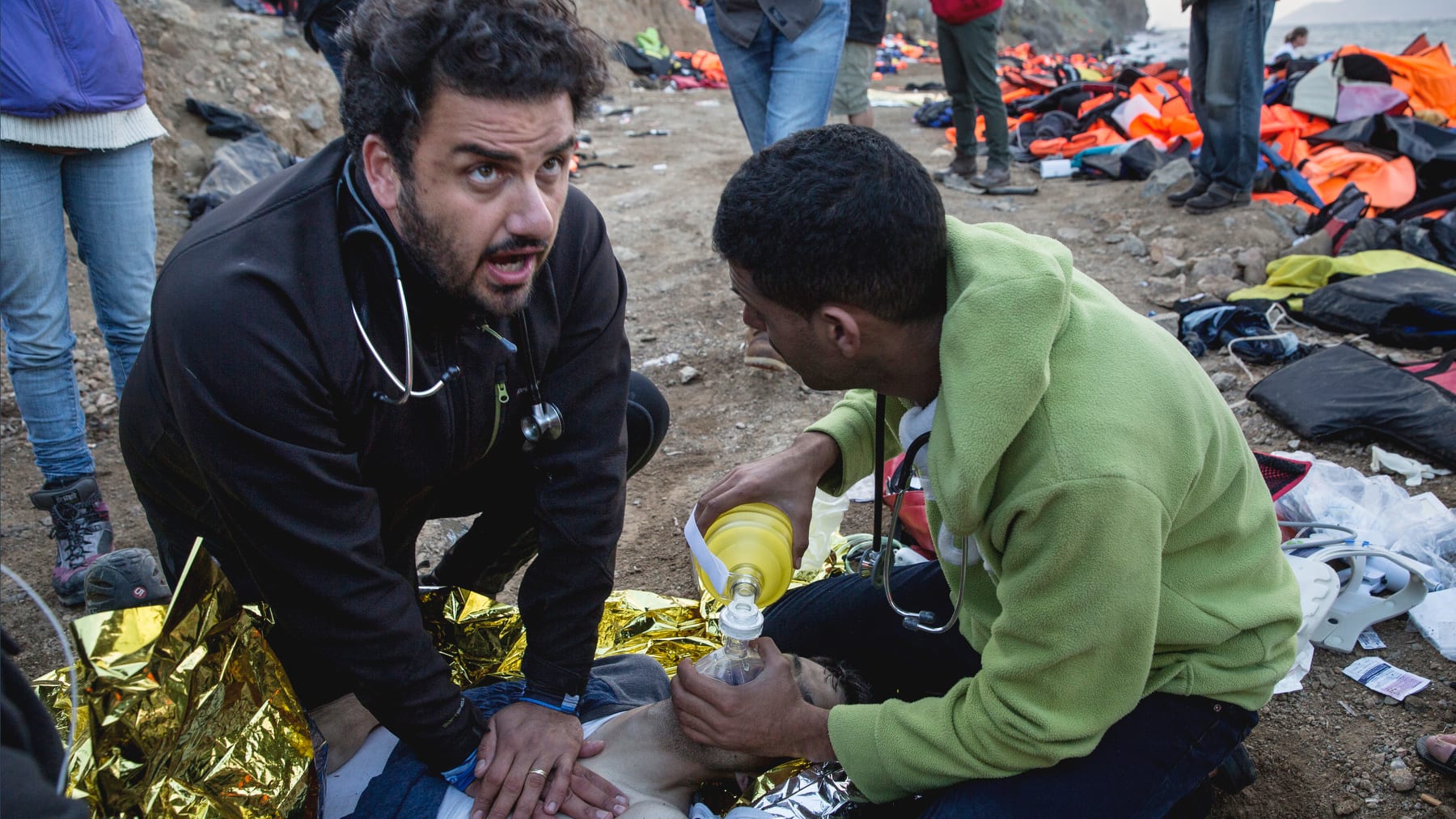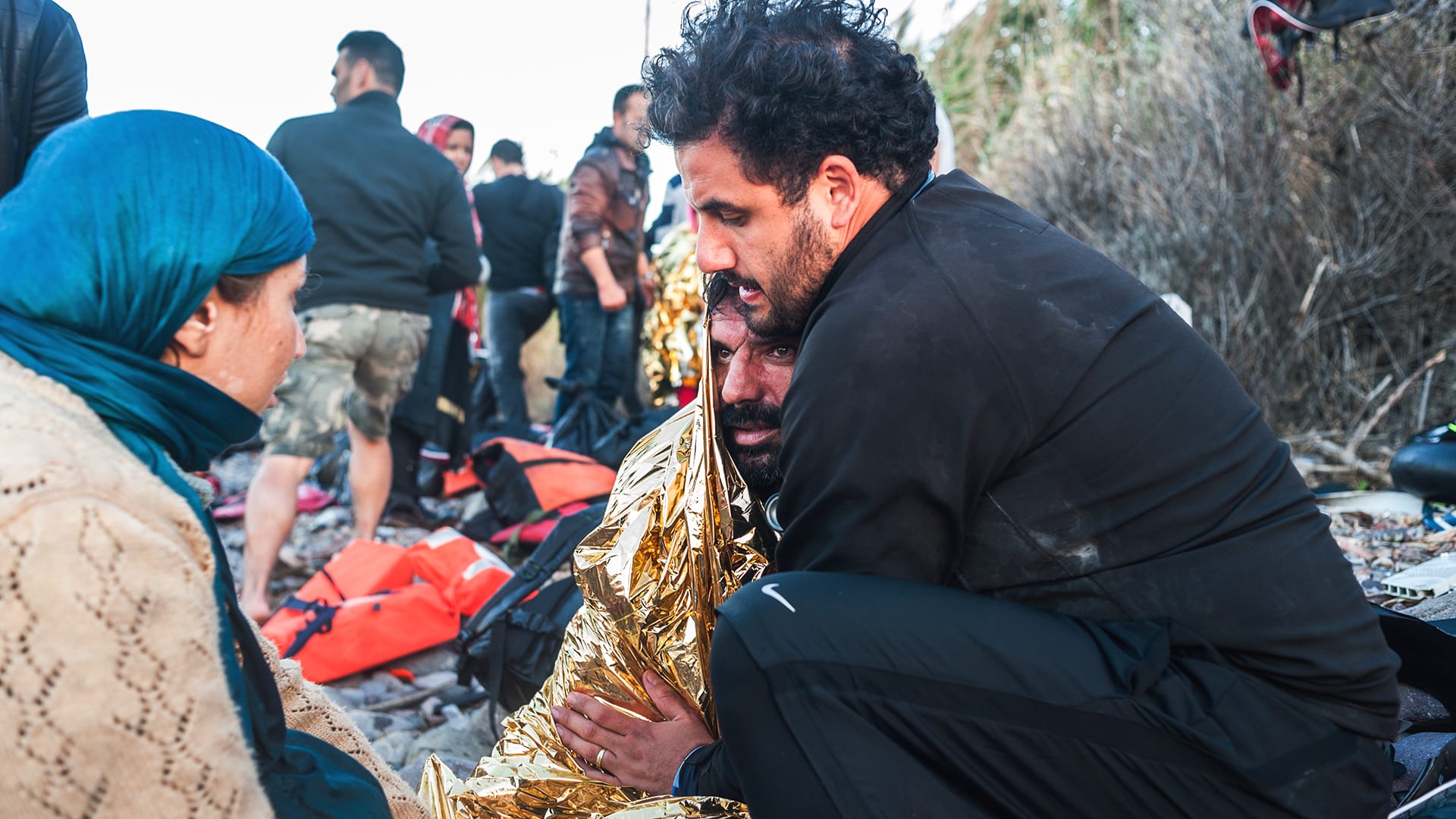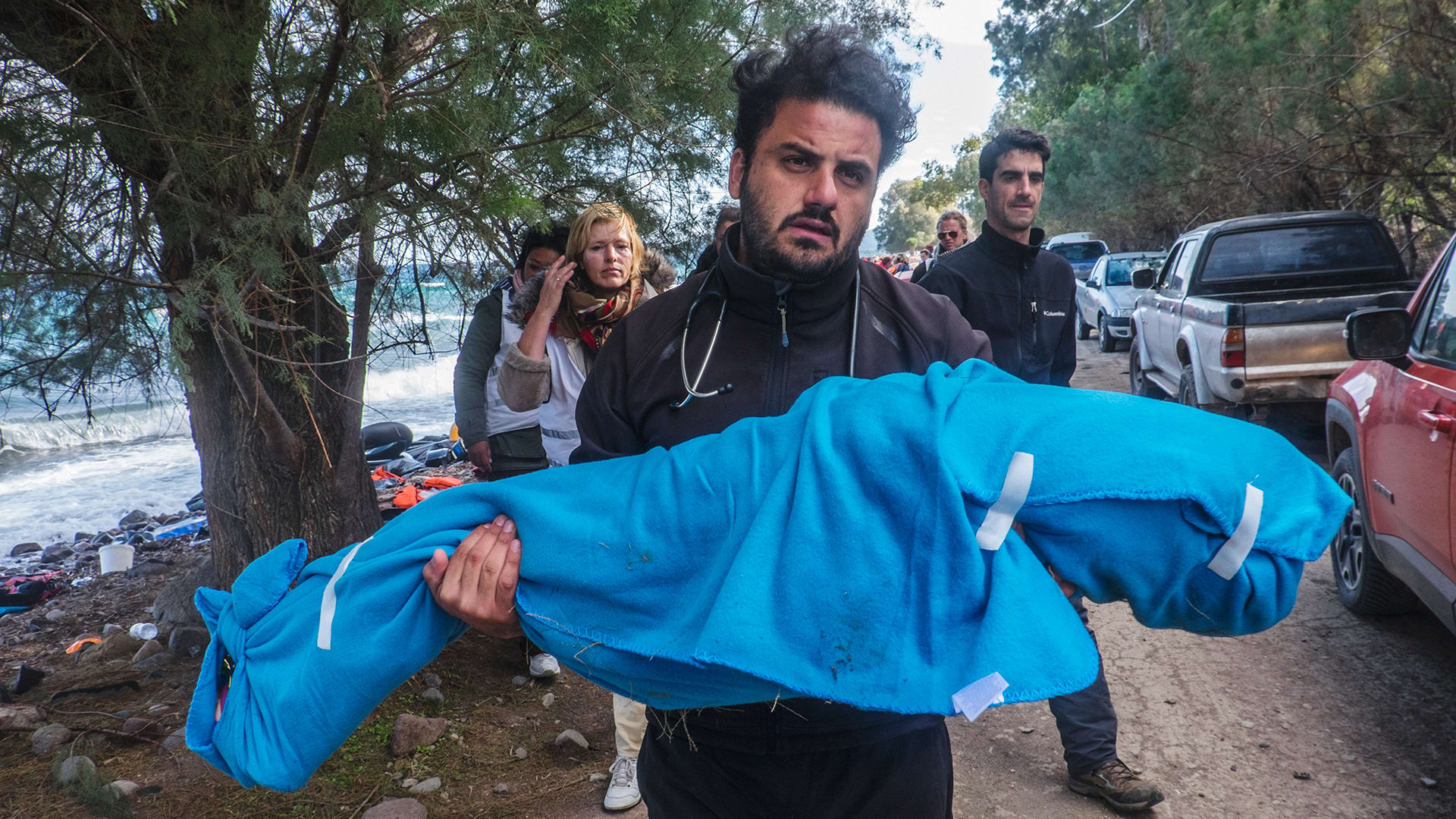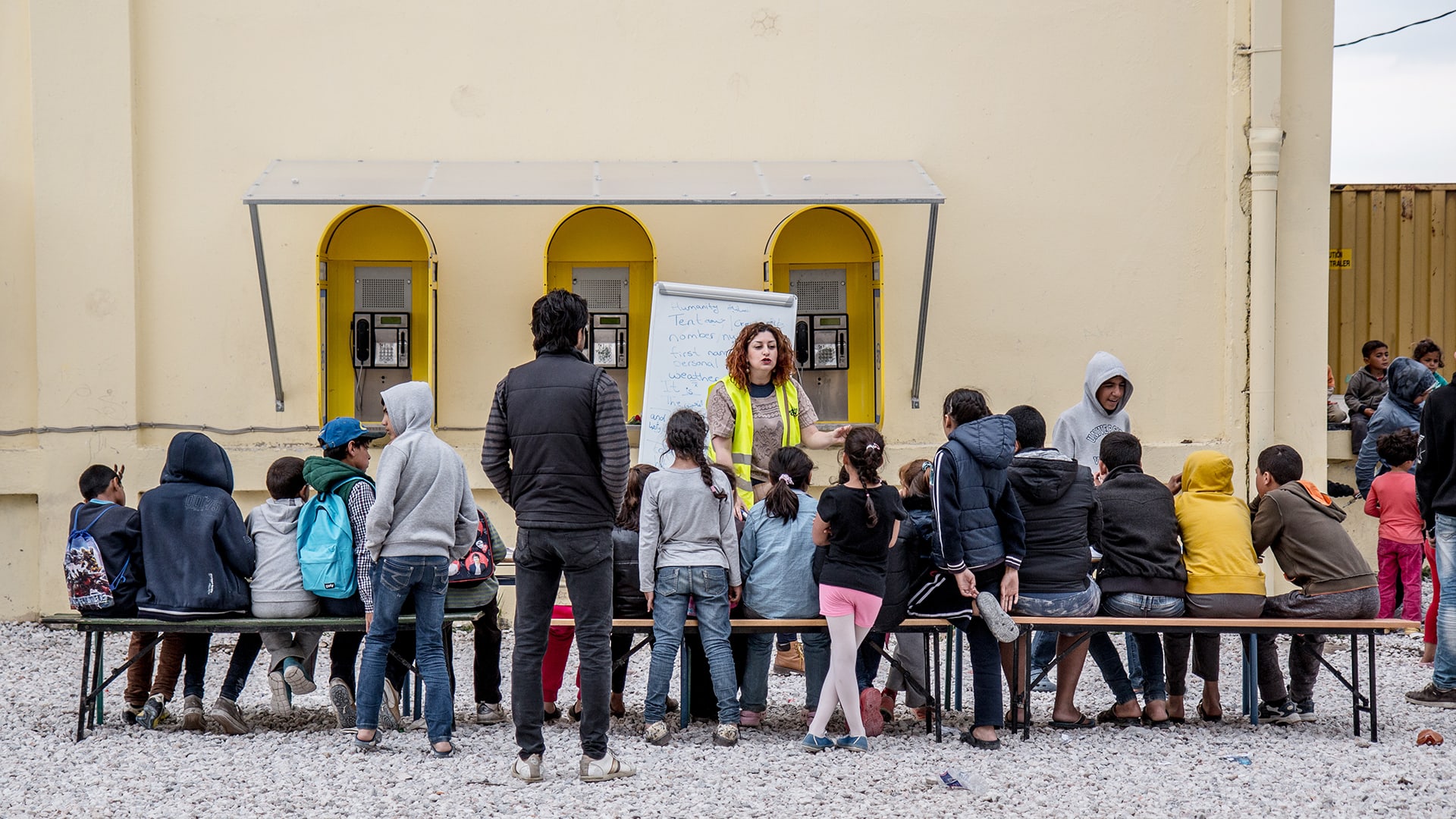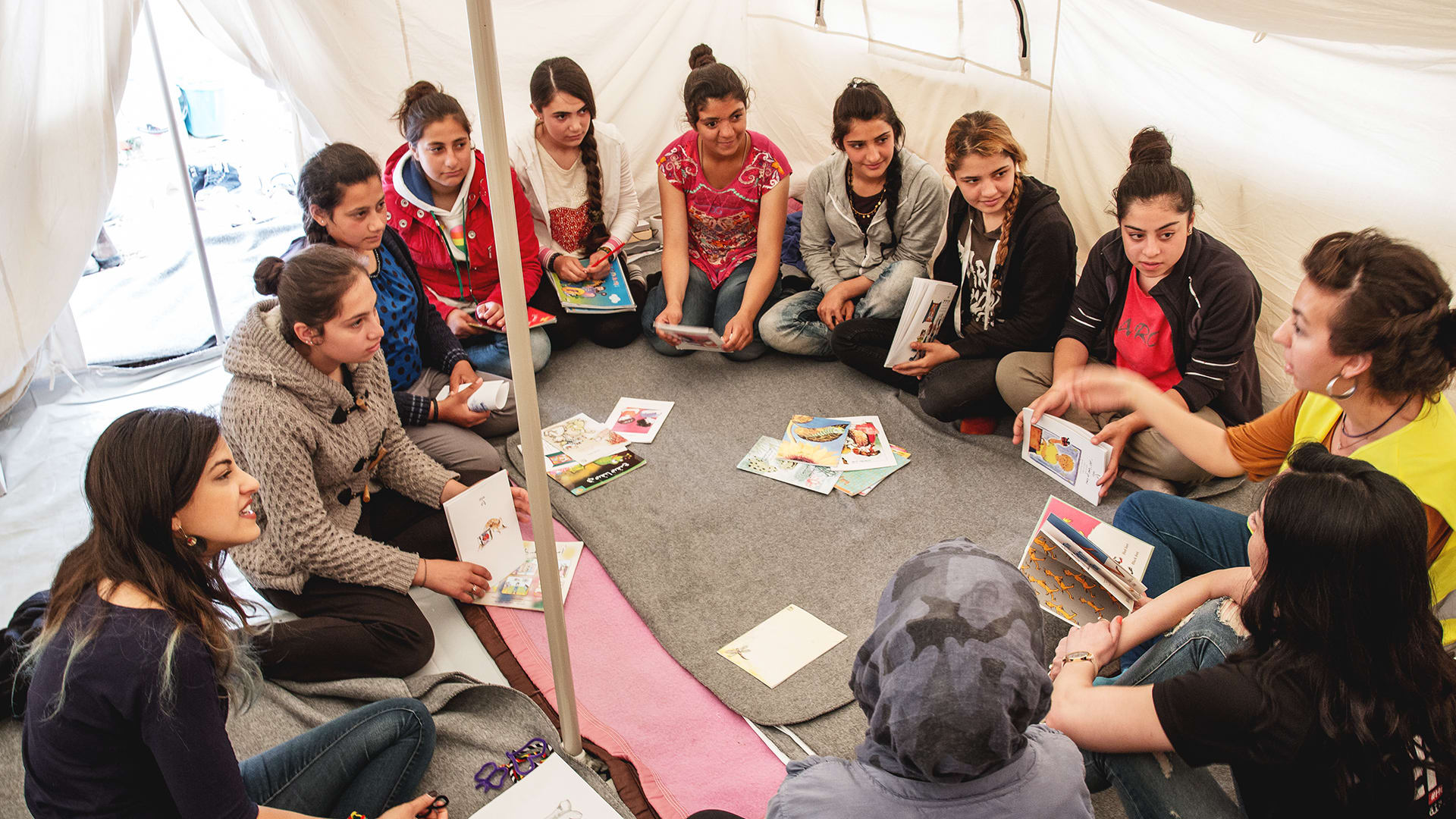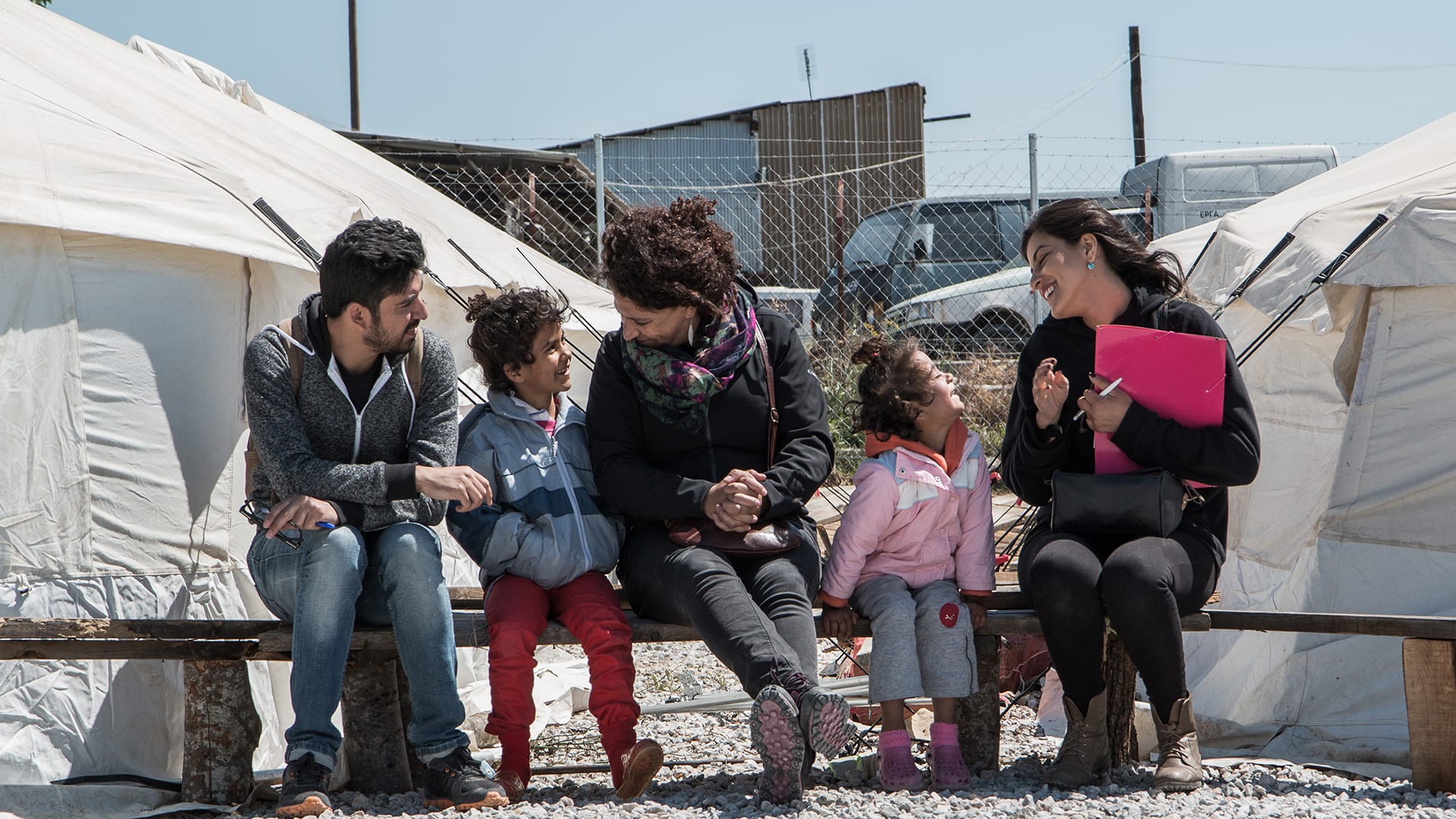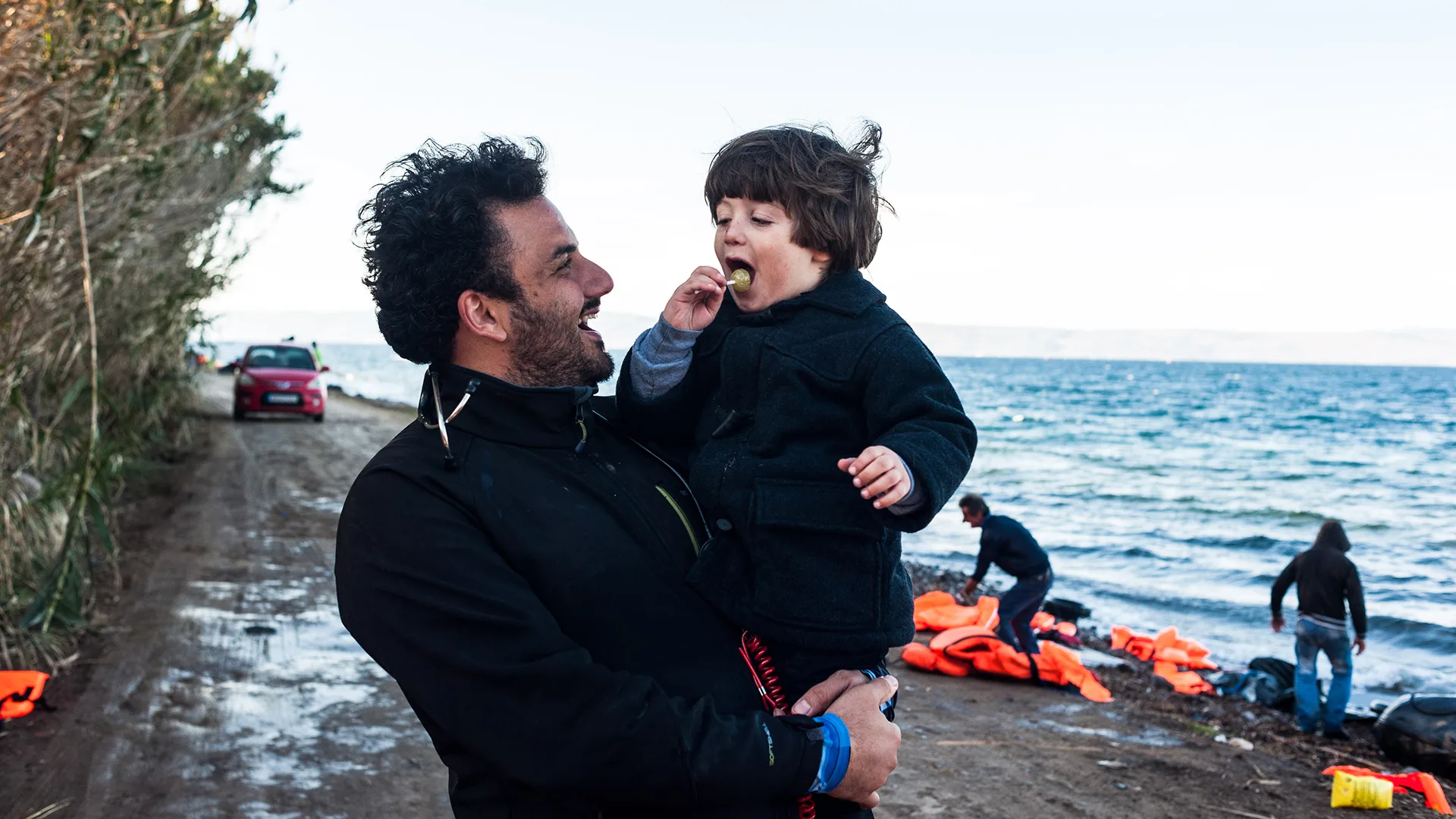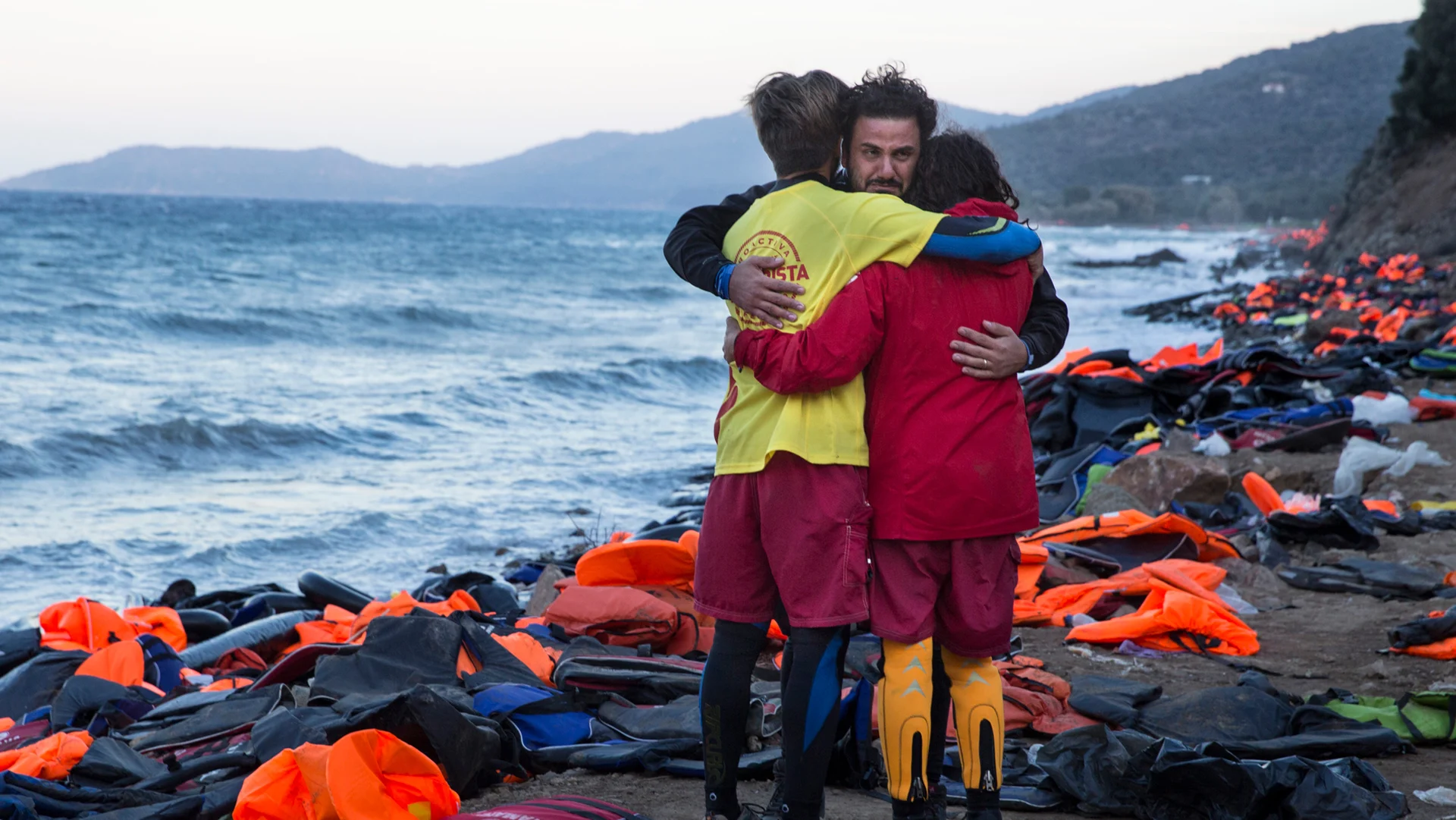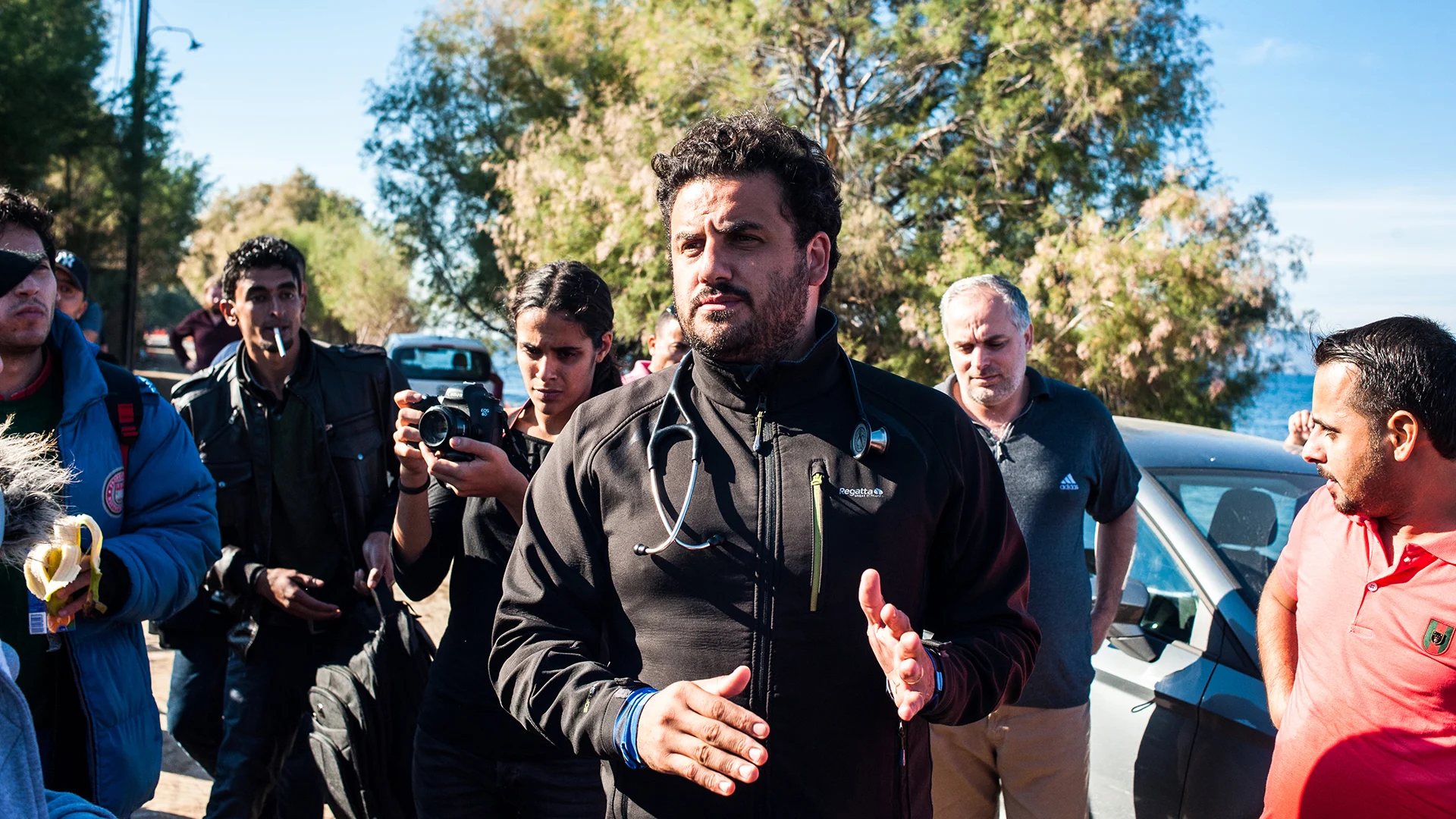In 2015, close to 3,300 people arrived each day on the shores of the Greek island of Lesbos, escaping war, famine, and persecution in their home countries across the Middle East and Africa. Aid workers stationed on the island would meet the refugees coming off the boats with food and blankets and medical help.
Essam Daod was one of those workers. A trained physician from Israel, Daod was finishing his residency in child psychiatry when the refugee crisis began to escalate. He and his wife Maria Jammal traveled to Lesbos in October 2015–a month when more than 200,000 refugees came to the island–to help. Daod administered CPR to people who nearly drowned in a shipwreck, and Jammal, a lawyer, helped counsel people and assist with getting them settled in the camps.
When they returned to their home in Haifa, Daod saw a photo in a newspaper, show him and a child he’d resuscitated after the shipwreck on October 28. Jammal remembered the kid. His name was Ahmed, and she met him when he arrived at the hospital after Daod treated him. He was silent and barely moving. Outside of the craziness of the camp, Daod recognized Ahmed had symptoms that they hadn’t noticed on Lesbos: He had endured catatonia–a deep traumatic shock.
“I realized I was being blind to the souls of refugees,” Daod says. “I was creating robots after doing each CPR by neglecting their souls.” As a child psychiatrist and trained psychotherapist, Daod knew how to treat Ahmed. But in the overwhelming conditions of the camps–the pressing need for food and medical assistance–there was no focus on people’s mental health needs.
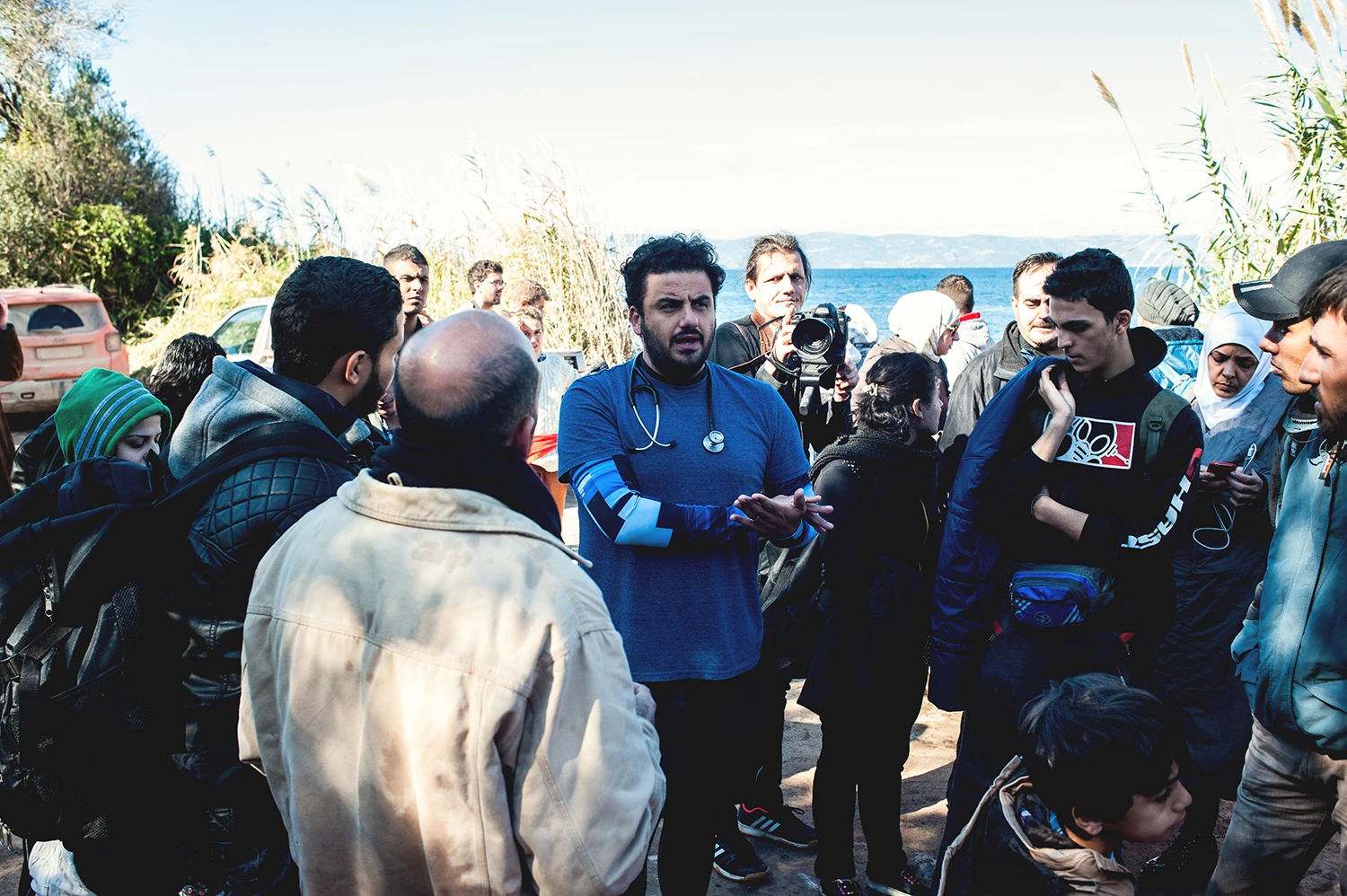
Since the first Humanity Crew mission in 2015, the nonprofit has deployed 194 delegations of volunteers, all of whom receive 30 hours of training and commit to staying in Greece for at least a month. They’ve provided over 26,000 hours of mental health assistance to 10,000 refugees. For his work, Daod was named a TED Fellow for 2018.
As he spent more time amid the refugee crisis, Daod soon learned that “as the body goes on a journey, the mind goes through four stages,” he says. There’s stage one: the acute trauma of fleeing their country and crossing the sea. Stage two revolves around acclimating to the camps, and stage three is the retraumatization of leaving the camp for an asylum country. In that new country, they go through stage four: the period of adjusting to their new home. “By understanding every stage, we provide suitable intervention at every step in the escape journey,” Daod says.
The first two stages, though, were the early focus. Humanity Crew partnered with Proactiva Open Arms–a Spanish lifeguard organization that intercepts refugee boats to help their passengers in transit. When Daod and his team of volunteers meet refugees on the boats, he immediately works to alleviate some of the stress and trauma of the passage. He plays music and encourages refugees to dance and share positive stories. This may seem like a trivial intervention, but the amygdala–the emotional storage portion of the human brain–will capture these memories and hold onto them, which in the future, Daod says, will dramatically decrease the likelihood of post-traumatic stress disorder. Many refugees, years after their journey, will develop a deep aversion to the sea, Daod says, because their only memories of it are filled with trauma. Adding those notes of positivity will counterbalance the psychological response to stimuli that refugees will encounter for the rest of their lives.
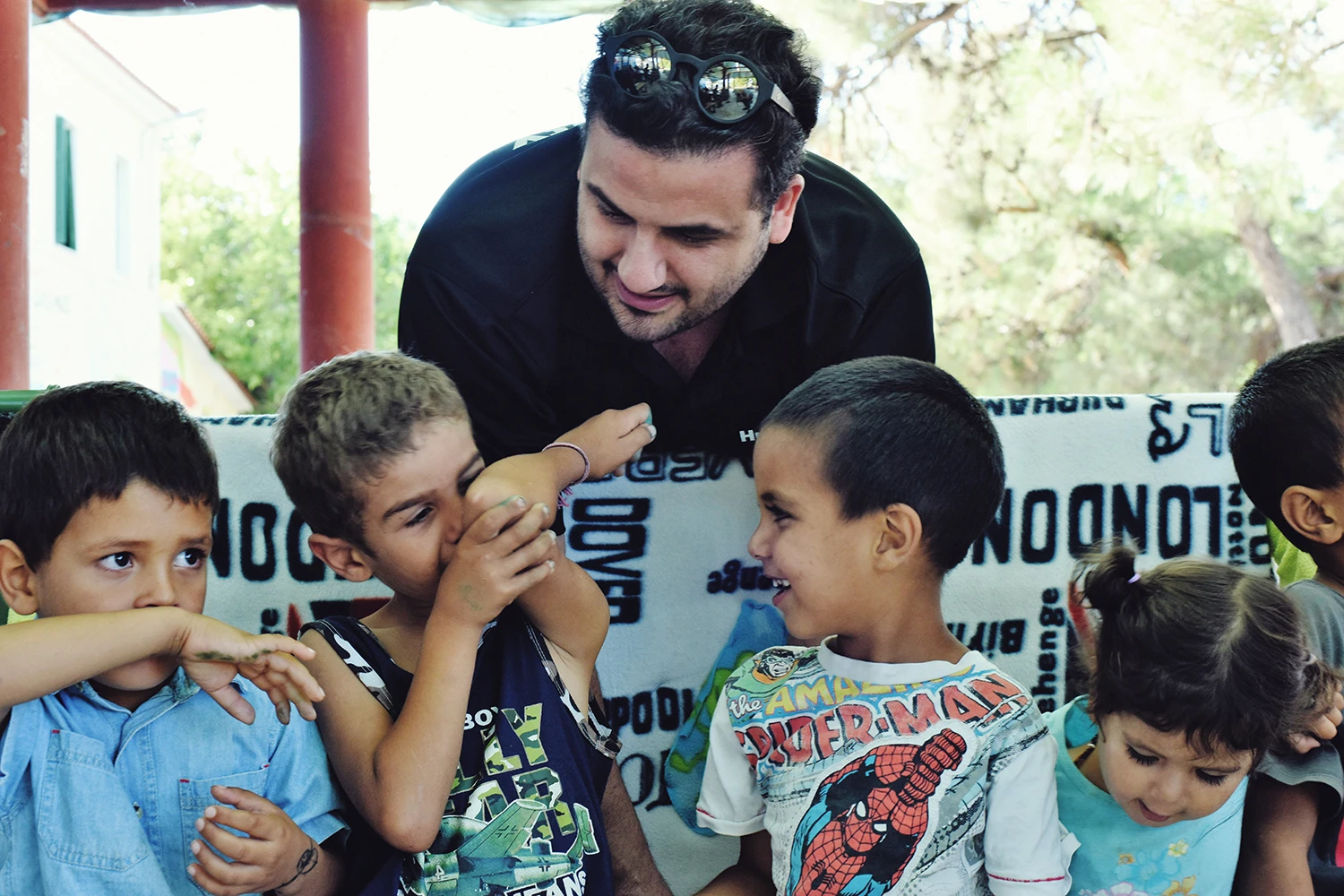
“We need to acknowledge that first aid is not just needed for the body–it also has to include the mind and the soul. The soul is hardly visible, but the damage can be there for life,” Daod says. Humanity Crew is one of just a handful of organizations tackling mental health issues in conflict zones and that’s reflected in the availability of funding, Daod says: For every 100 funds for food and medical aid, he says, you might find just two or three devoted to mental health. In the context of the refugee crisis, treating mental health concerns requires overcoming not only the stigma around mental health services in the first place, but also navigating an already-stretched field of aid and crisis response.
Daod is not arguing with the fact that more resources are needed to provide food, physical health, and shelter, among the myriad other logistical services refugees should be able to access. What he is arguing, though, is that it’s not just enough to bandage and feed a person who has endured a traumatic migration unlike anything any of us will experience. They also need the humanizing care and mental support to continue on.
As the numbers of refugees arriving at Lesbos daily has dwindled to dozens, Daod is looking out for Humanity Crew’s next move: tackling stages three and four of the four-step plan. He anticipates that Humanity Crew will open a new base in the Netherlands to serve refugees seeking asylum there, and also hopes to expand the nonprofit’s presence to east Asia, where the displacement and persecution of the Rohingya people remains a humanitarian crisis.
Recognize your brand’s excellence by applying to this year’s Brands That Matter Awards before the early-rate deadline, May 3.
